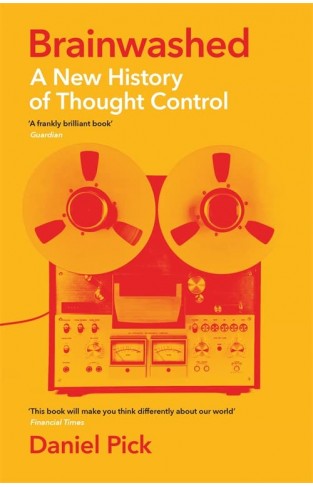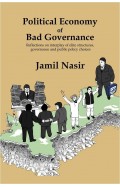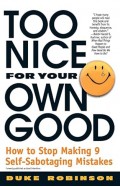- Home
- Books
- Categories
- Non Fiction
- Philosophy
- Brainwashed: A New History of Thought Control (Wellcome Collection)
Brainwashed: A New History of Thought Control (Wellcome Collection)
By: Daniel Pick
-
Rs 3,505.50
- Rs 3,895.00
- 10%
You save Rs 389.50.
Due to constant currency fluctuation, prices are subject to change with or without notice.
'A frankly brilliant book' The Guardian
'An extraordinarily engrossing and wide-ranging analysis of a word and a concept. I fell under its spell immediately' Simon Garfield
In 1953, a group of prisoners of war who had fought against the communist invasion of South Korea were released. They chose - apparently freely - to move to Mao's China. Among those refusing repatriation were twenty-one American GIs. Their decision sparked alarm in the West: why didn't they want to come home? What was going on?
Soon, people were saying that the POWs' had been 'brainwashed'. Was this something new or a phenomenon that has been around for centuries? The belief that it is possible to marshal scientific knowledge to govern someone's mind gained enormous attention. In an era of Cold War paranoia and experimentation on 'altered states', the idea of brainwashing flourished, appearing in everything from critiques of CIA research on LSD to warnings of corporate groupthink, from visions of automaton assassins to conspiracy theories about 'global elites'. Today, brainwashing is almost taken for granted - built into our psychological and political language, rooted in the way we think about minds and societies. How did we get to this point - and why?
Psychoanalyst and historian Daniel Pick delves into the mysterious world of brainwashing in the twentieth and twenty-first centuries, from The Manchurian Candidate to ISIS, TV advertising to online algorithms. Mixing fascinating case studies with historical and psychological insights, Brainwashed is a stimulating journey into the mysteries of thought control.
'A frankly brilliant book' The Guardian
'An extraordinarily engrossing and wide-ranging analysis of a word and a concept. I fell under its spell immediately' Simon Garfield
In 1953, a group of prisoners of war who had fought against the communist invasion of South Korea were released. They chose - apparently freely - to move to Mao's China. Among those refusing repatriation were twenty-one American GIs. Their decision sparked alarm in the West: why didn't they want to come home? What was going on?
Soon, people were saying that the POWs' had been 'brainwashed'. Was this something new or a phenomenon that has been around for centuries? The belief that it is possible to marshal scientific knowledge to govern someone's mind gained enormous attention. In an era of Cold War paranoia and experimentation on 'altered states', the idea of brainwashing flourished, appearing in everything from critiques of CIA research on LSD to warnings of corporate groupthink, from visions of automaton assassins to conspiracy theories about 'global elites'. Today, brainwashing is almost taken for granted - built into our psychological and political language, rooted in the way we think about minds and societies. How did we get to this point - and why?
Psychoanalyst and historian Daniel Pick delves into the mysterious world of brainwashing in the twentieth and twenty-first centuries, from The Manchurian Candidate to ISIS, TV advertising to online algorithms. Mixing fascinating case studies with historical and psychological insights, Brainwashed is a stimulating journey into the mysteries of thought control.
Brainwashed: A New History of Thought Control (Wellcome Collection)
By: Daniel Pick
Rs 3,505.50 Rs 3,895.00 Ex Tax :Rs 3,505.50
Zubin Mehta: A Musical Journey (An Authorized Biography)
By: VOID - Bakhtiar K. Dadabhoy
Rs 892.50 Rs 1,050.00 Ex Tax :Rs 892.50
Islam: A Short History (UNIVERSAL HISTORY)
By: Karen Armstrong
Rs 1,355.75 Rs 1,595.00 Ex Tax :Rs 1,355.75
Matrix Energetics: the Science and Art of Transformation
By: Richard Burton
Rs 1,798.40 Rs 4,496.00 Ex Tax :Rs 1,798.40
Political Economy of Bad Governance - Reflections on Interplay of Elite Structure, Governance and Public Policy Choices
By: Jamil Nasir
Rs 1,440.00 Rs 1,600.00 Ex Tax :Rs 1,440.00
50 Philosophy Ideas You Really Need to Know
By: Ben Dupre
Rs 2,245.50 Rs 2,495.00 Ex Tax :Rs 2,245.50
The Origins of Political Order From Prehuman Times to the French RevolutioN
By: Francis Fukuyama
Rs 4,045.50 Rs 4,495.00 Ex Tax :Rs 4,045.50
Manning Up: How the Rise of Women Has Turned Men into Boys
By: Kay Hymowitz
Rs 845.75 Rs 995.00 Ex Tax :Rs 845.75
The Obama Syndrome: Surrender At Home War Abroad
By: Tariq Ali
Rs 1,100.75 Rs 1,295.00 Ex Tax :Rs 1,100.75
The Quest For Meaning: Developing A Philosophy Of Pluralism
By: Tariq Ramadan
Rs 1,185.75 Rs 1,395.00 Ex Tax :Rs 1,185.75
The Pakistan US Conundrum Jihadists The Military And The People The Struggle For Control
By: Yunas Samad
Rs 1,185.75 Rs 1,395.00 Ex Tax :Rs 1,185.75
An Enemy We Created: The Myth Of The Taliban Al Qaeda Merger In Afghanistan 19702010
By: Alex Strick van Linschoten
Rs 4,197.50 Rs 8,395.00 Ex Tax :Rs 4,197.50
WikiLeaks: Inside Julian Assanges War on Secrecy
By: David Leigh & Luke Harding
Rs 637.50 Rs 850.00 Ex Tax :Rs 637.50
Islam: A Short History (UNIVERSAL HISTORY)
By: Karen Armstrong
Rs 1,355.75 Rs 1,595.00 Ex Tax :Rs 1,355.75
Matrix Energetics: the Science and Art of Transformation
By: Richard Burton
Rs 1,798.40 Rs 4,496.00 Ex Tax :Rs 1,798.40
Political Economy of Bad Governance - Reflections on Interplay of Elite Structure, Governance and Public Policy Choices
By: Jamil Nasir
Rs 1,440.00 Rs 1,600.00 Ex Tax :Rs 1,440.00
50 Philosophy Ideas You Really Need to Know
By: Ben Dupre
Rs 2,245.50 Rs 2,495.00 Ex Tax :Rs 2,245.50
Too Nice for Your Own Good - How to Stop Making 9 Self-Sabotaging Mistakes
By: Duke Robinson
Rs 4,495.50 Rs 4,995.00 Ex Tax :Rs 4,495.50
Fast Like a Girl - A Woman's Guide to Using the Healing Power of Fasting to Burn Fat, Boost Energy, and Balance Hormones
By: Mindy Pelz
Rs 7,375.50 Rs 8,195.00 Ex Tax :Rs 7,375.50
We are the Weather - Saving the Planet Begins at Breakfast
By: Jonathan Safran Foer
Rs 1,270.75 Rs 1,495.00 Ex Tax :Rs 1,270.75
Shift - The New Science of Managing Your Emotions So They Don't Manage You
By: Ethan Kross
Rs 4,295.00 Ex Tax :Rs 4,295.00
Zubin Mehta: A Musical Journey (An Authorized Biography)
By: VOID - Bakhtiar K. Dadabhoy
Rs 892.50 Rs 1,050.00 Ex Tax :Rs 892.50
Brainwashed: A New History of Thought Control (Wellcome Collection)
By: Daniel Pick
Rs 3,505.50 Rs 3,895.00 Ex Tax :Rs 3,505.50
Islam: A Short History (UNIVERSAL HISTORY)
By: Karen Armstrong
Rs 1,355.75 Rs 1,595.00 Ex Tax :Rs 1,355.75
Matrix Energetics: the Science and Art of Transformation
By: Richard Burton
Rs 1,798.40 Rs 4,496.00 Ex Tax :Rs 1,798.40
Political Economy of Bad Governance - Reflections on Interplay of Elite Structure, Governance and Public Policy Choices
By: Jamil Nasir
Rs 1,440.00 Rs 1,600.00 Ex Tax :Rs 1,440.00
50 Philosophy Ideas You Really Need to Know
By: Ben Dupre
Rs 2,245.50 Rs 2,495.00 Ex Tax :Rs 2,245.50














-120x187.jpg?q6)










-120x187.jpg?q6)



-120x187.jpg?q6)







